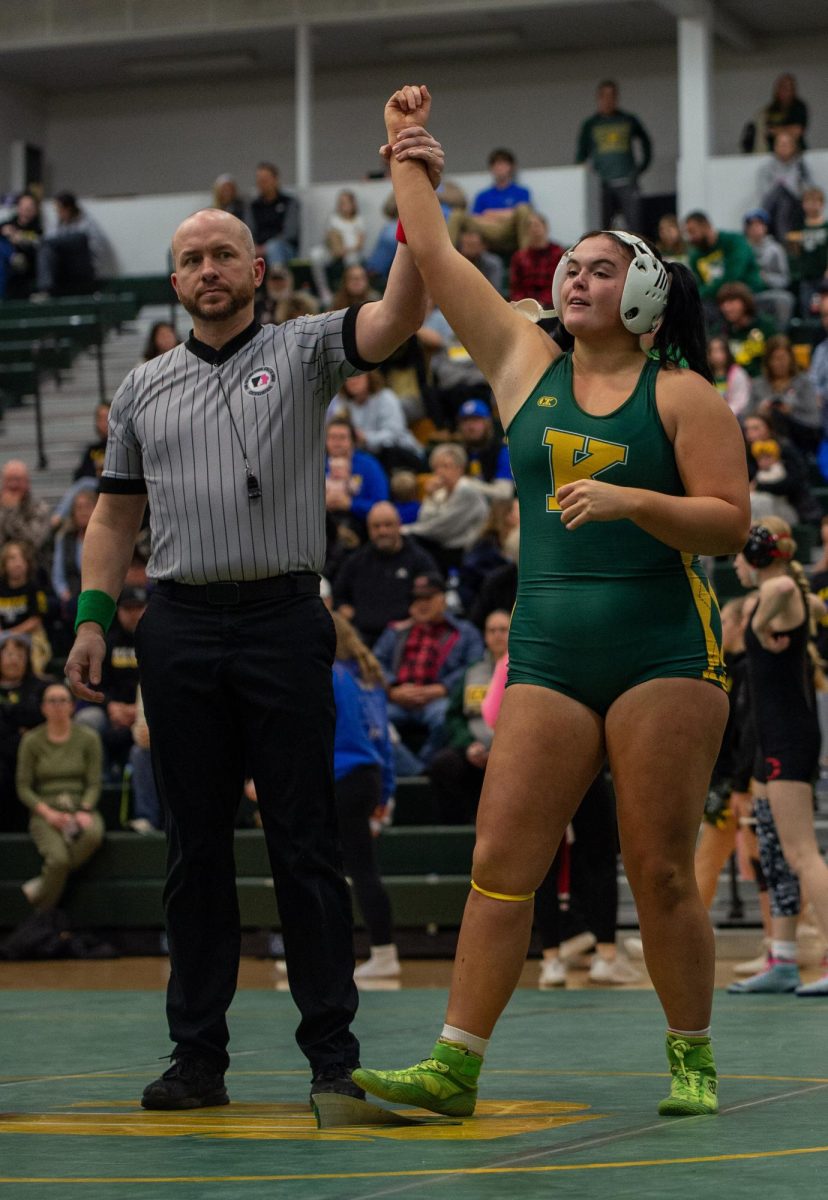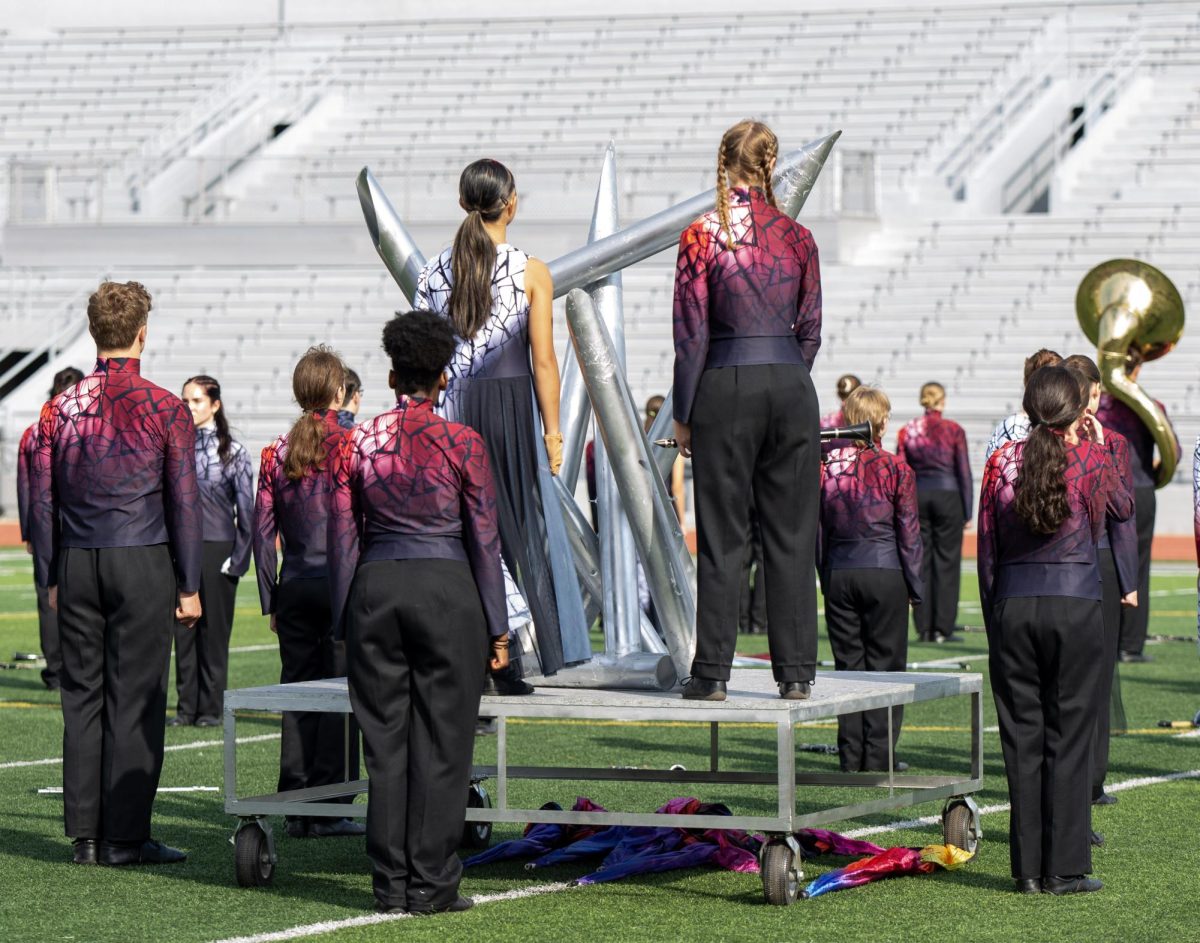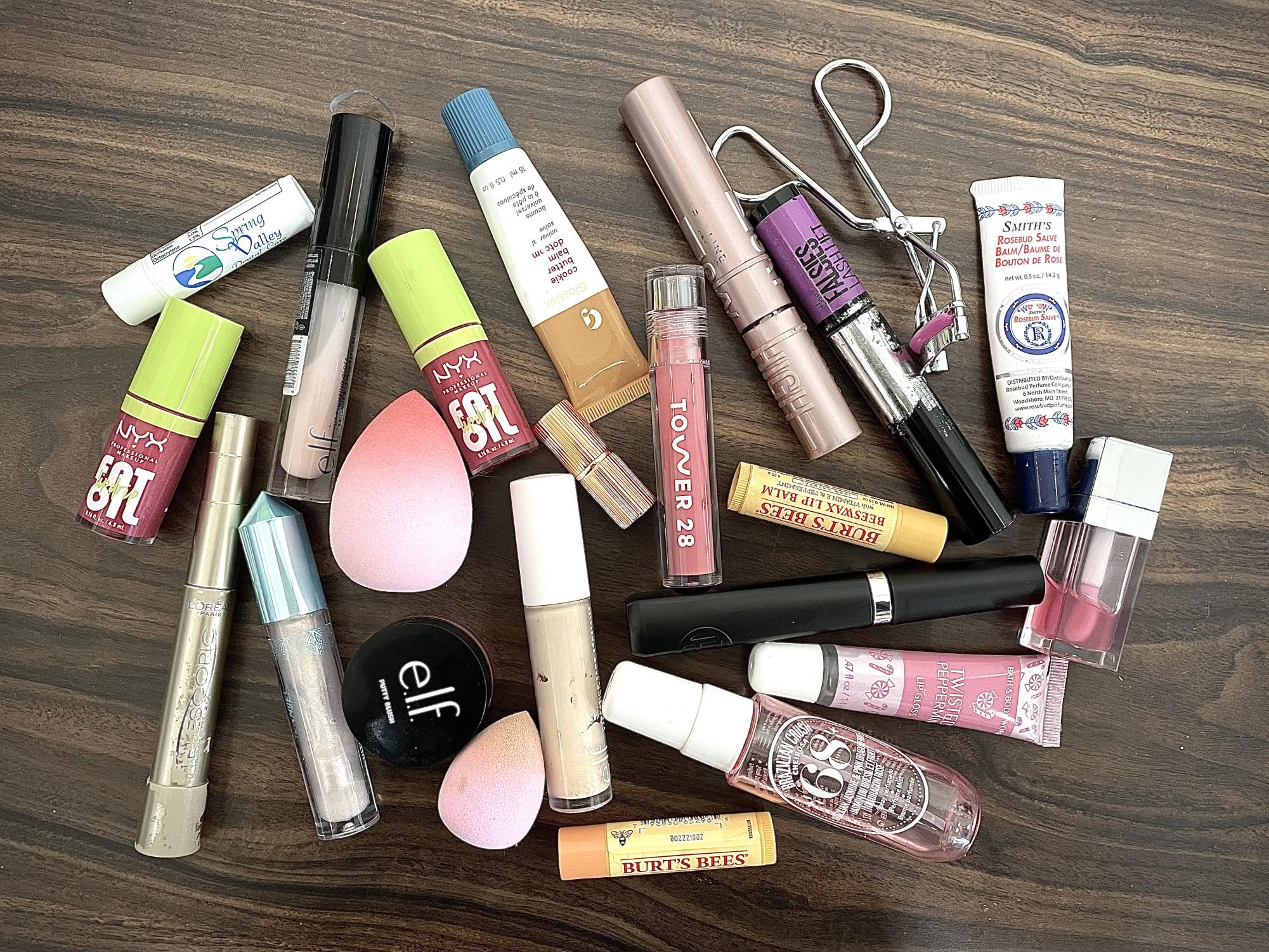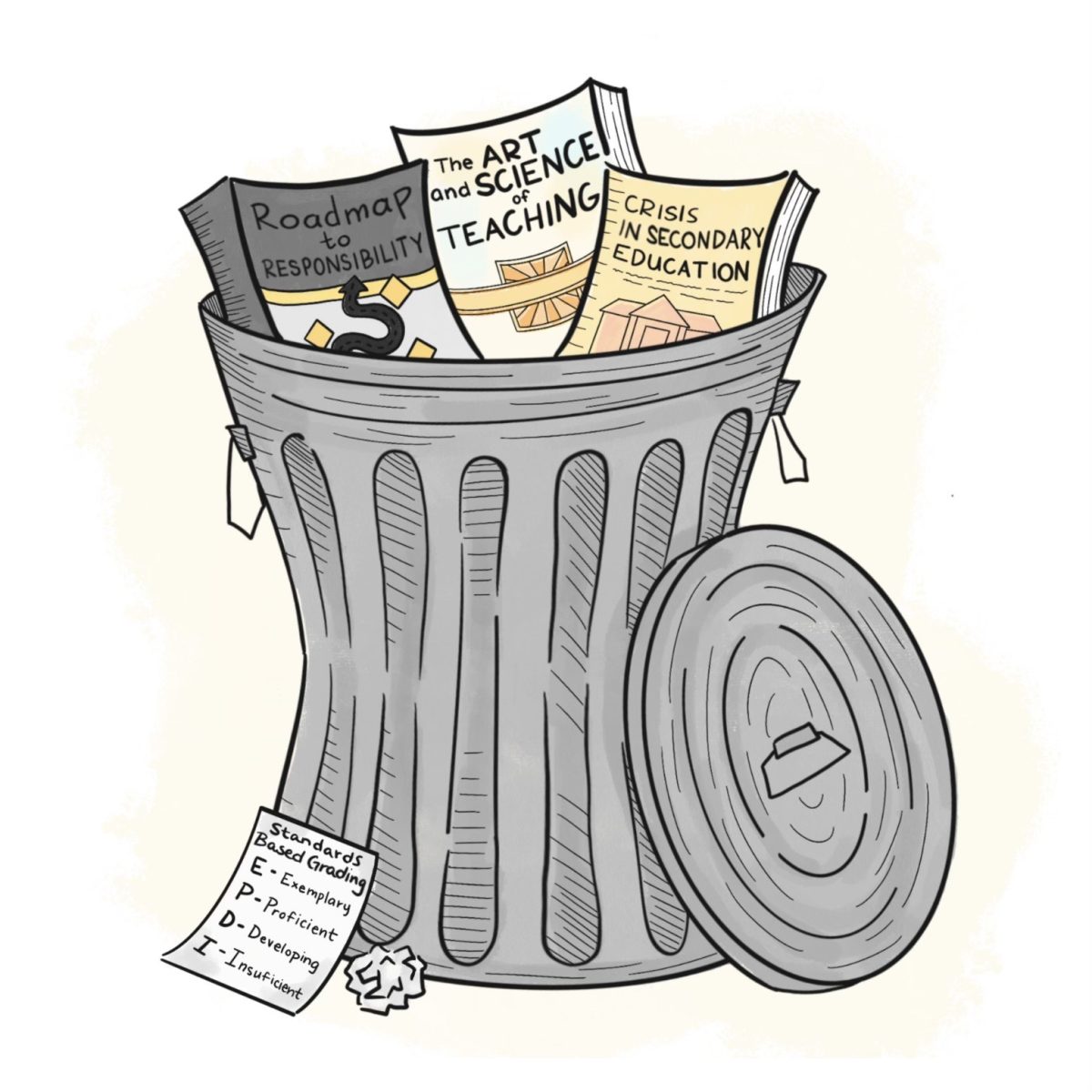“Sephora Kids” is a term sweeping the internet as store-goers report broken and misused tester products, blaming national store mishaps on the growing demographic of young tweens- 10 and under- rampaging through the stores.
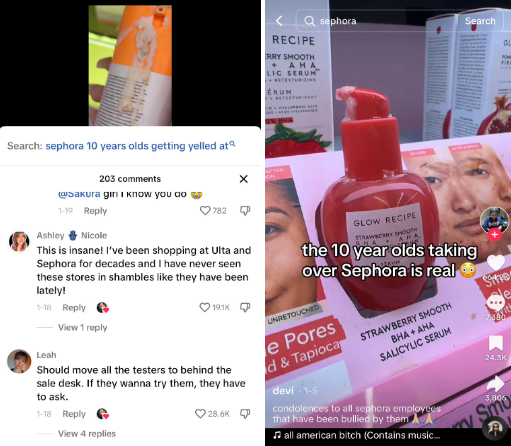
Workers and customers share videos about baffling experiences with children in beauty stores. A caption to a TikTok saying “Condolences to all Sephora employees that have been bullied by them”. Pointing at a behavioral issue with the generation of younger kids in stores such as Sephora or Ulta. Social media has also charged the young kids with vandalism. A user comments “ I have never seen these stores in shambles like they have been lately!“
“I think that there should be an age limit for going to Sephora,” said sophomore Kate Dyer. “Like, if you’re under 14 you have to have a parent with you”.
Online, the general feeling is that young girls are starting makeup and complex skincare routines unnecessarily young. Many agree that this is a growing issue and the audience of these videos is not shy to respond.
Instagram reels have become known for more unhinged comment sections- compared to other platforms, such as TikTok. While any comment section online can show a negative focus, Instagram comments have more leniency and often go unreported on the app.
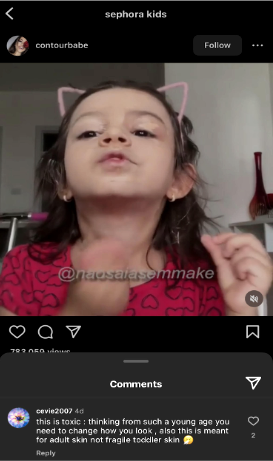
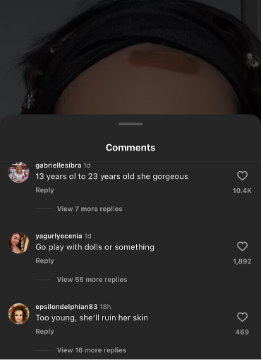
The Instagram comment section of two “Sephora Kid” posts. (Left: Jan 27th, 2024) (Right: Jan 18th, 2024)
“This is toxic: thinking from such a young age you need to change the way you look, also this is meant for adult skin, not fragile toddler skin” A user comments on an Instagram video of a young child playing with makeup.
“13 to 23 years old…”, “Go play with dolls or something” and “Too young, she’ll ruin her skin” Multiple different users commented on an Instagram Reel of an 11-year-old girl posting a “Get ready with me”.
The overwhelming opinion online seems to be that kids nowadays are growing up too fast. Viewers freak when they see gen-alpha and gen-z using retinal and anti-aging products, which are unnecessary for their age.
“There are makeup products in stores that kids should not be using,” said sophomore Kate Dyer. “like Drunk Elephant and Retinal”.
Tweens are constantly seeking out name-brand products and celebrity beauty brands. Shock for the parents of “Sephora kids” is spurred by the willingness to supply this expensive hobby for their child.
“I think it’s insane parents pay that much,” said Junior Haile Miller. “[In Sephora] I’ve seen tween little brats stealing products, complaining and yelling at Sephora workers”
Social media’s large access to young people is and will continue to influence the coming generations. This is why these kids are “growing up too fast”.
“When I was younger, I would just copy what the older kids were doing to try to fit in or seem cooler,” sophomore Hadassah Hanson said.
Social media has become the new lifestyle and has overtaken the ‘childhood’ we all expect. Roughly three in five Gen Z-ers ages 13 to 26 (57%) said they would become an influencer if given the opportunity, according to research from Morning Consult’s latest influencer playbook.
“I feel like the reason [kids] want to do all this stuff [such as makeup and skincare] is because they are influenced by the people on the internet” said sophomore Kate Dyer.
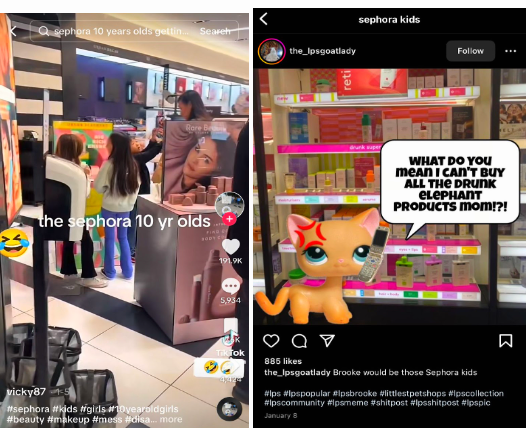
(Left: TikTok regarding “Sephora kids” Jan. 15th) (Right: Instagram Post regarding “Sephora Kids” Jan. 8th)
When it comes to the blaming of Sephora Kids, the nature seems to be making fun of them. People believe tweens are too young to use the same products as adults, but not too young to be cyberbullied by these grown-ups.
We need to stop and ask ourselves: Who is the one influencing the younger generations? Who is creating the content these kids are seeing?
Influencers create “Hauls” content of products they bought at Sephora or Ulta. Celebrities sharing “GRWM” (Get ready with me ) videos, raving about makeup/skincare “Must-haves”. Companies and celebrity brands are constantly targeting younger audiences to promote their products via promos and product reviews on social media. These all contribute to why kids are “Growing up too fast”.
“When I was that age, I was playing with Monster High dolls and Shopkins,” junior Haile Miller said.
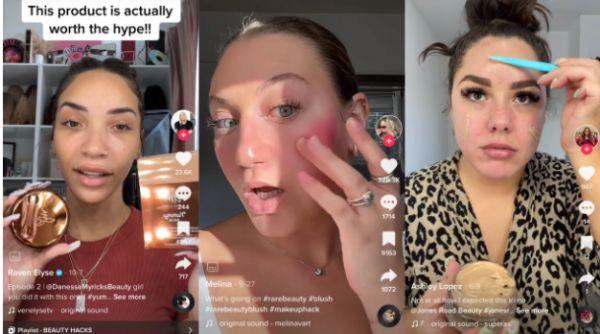
Influencers on TikTok promote brands and give product reviews
A study by Scott Social found that 42% of beauty product buyers (aged 18-24) are inspired to buy beauty products through social media. 37% of shoppers find out about new cosmetic brands through social media ads. 66% of customers discover brands on social media through celebrity endorsements and bloggers.
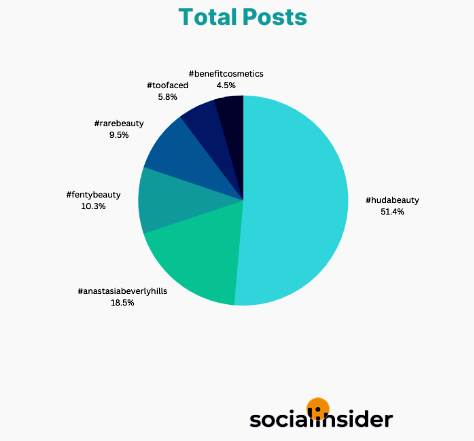
Socailinsider data from Instagram Insights on the content makeup of the beauty industry on social media, by hashtags.
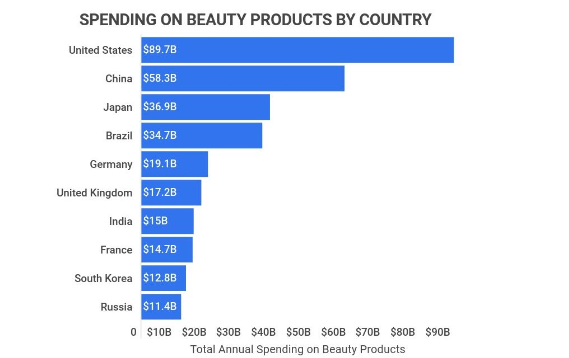
Statistics by Zippia
Americans are subsequently spending approximately $89.7 billion on beauty products as a whole. A conclusion has to be drawn between the internalized ageism in the US, and the amount of money people spend on products claiming to help them look younger.
Companies know to target young adults and teens, because if they start wearing makeup younger- if they believe hundreds of dollars in skin care products are the only way to achieve clear skin- they will never stop.
“You don’t need makeup when you are twelve” sophomore Matty Cratton said.
Overall, the blame and bullying of “Sephora Kids” online needs to stop. The modern world shoves “grown-up “ things in kids’ faces -and then is appalled that childhoods now don’t look exactly like theirs did.
Ask yourselves: What are we doing to help these kids?



